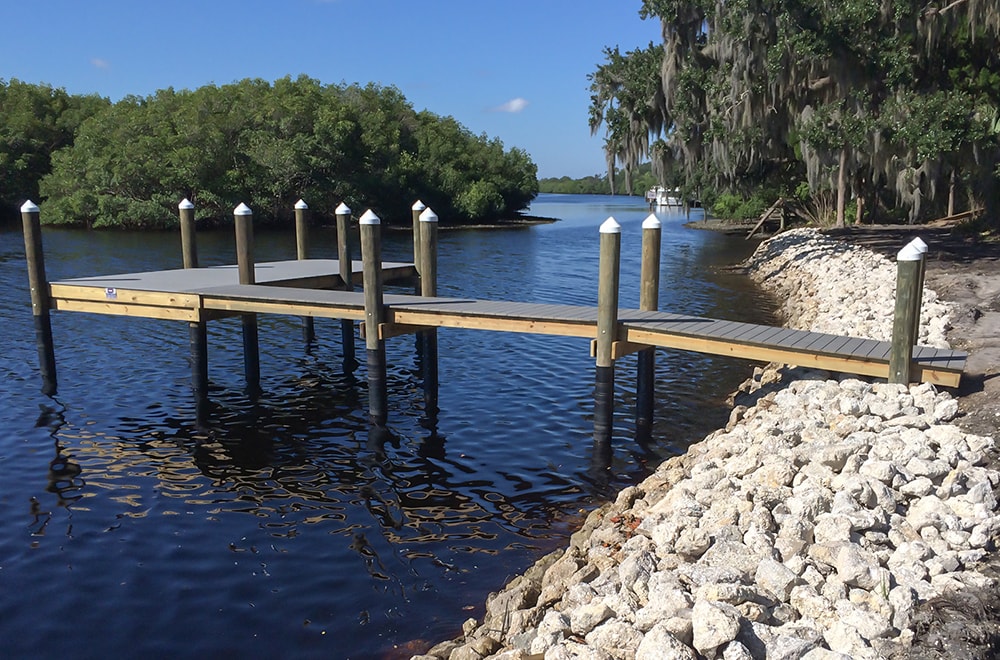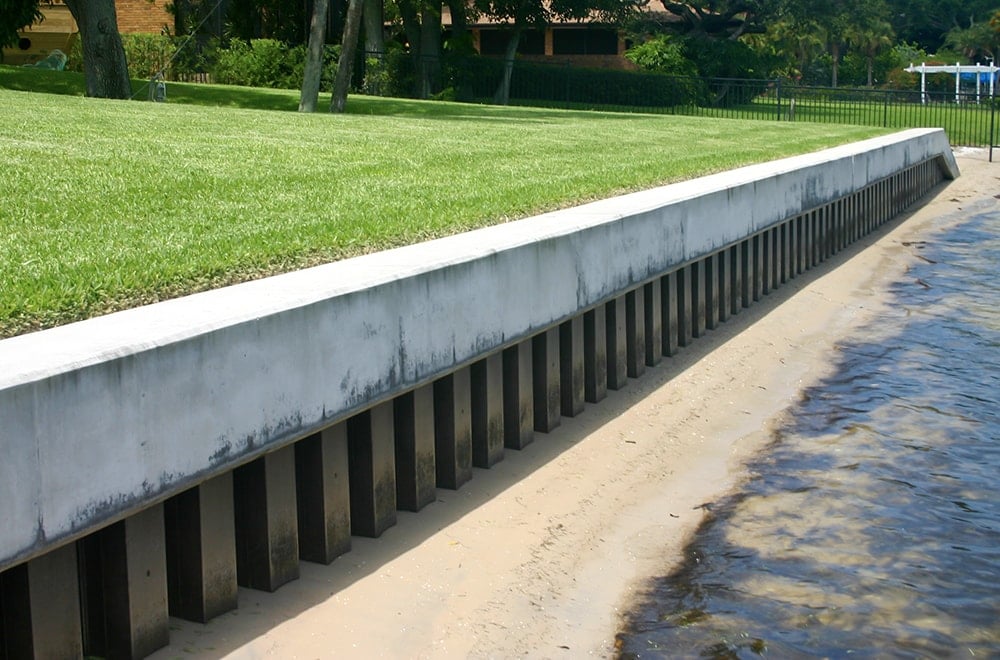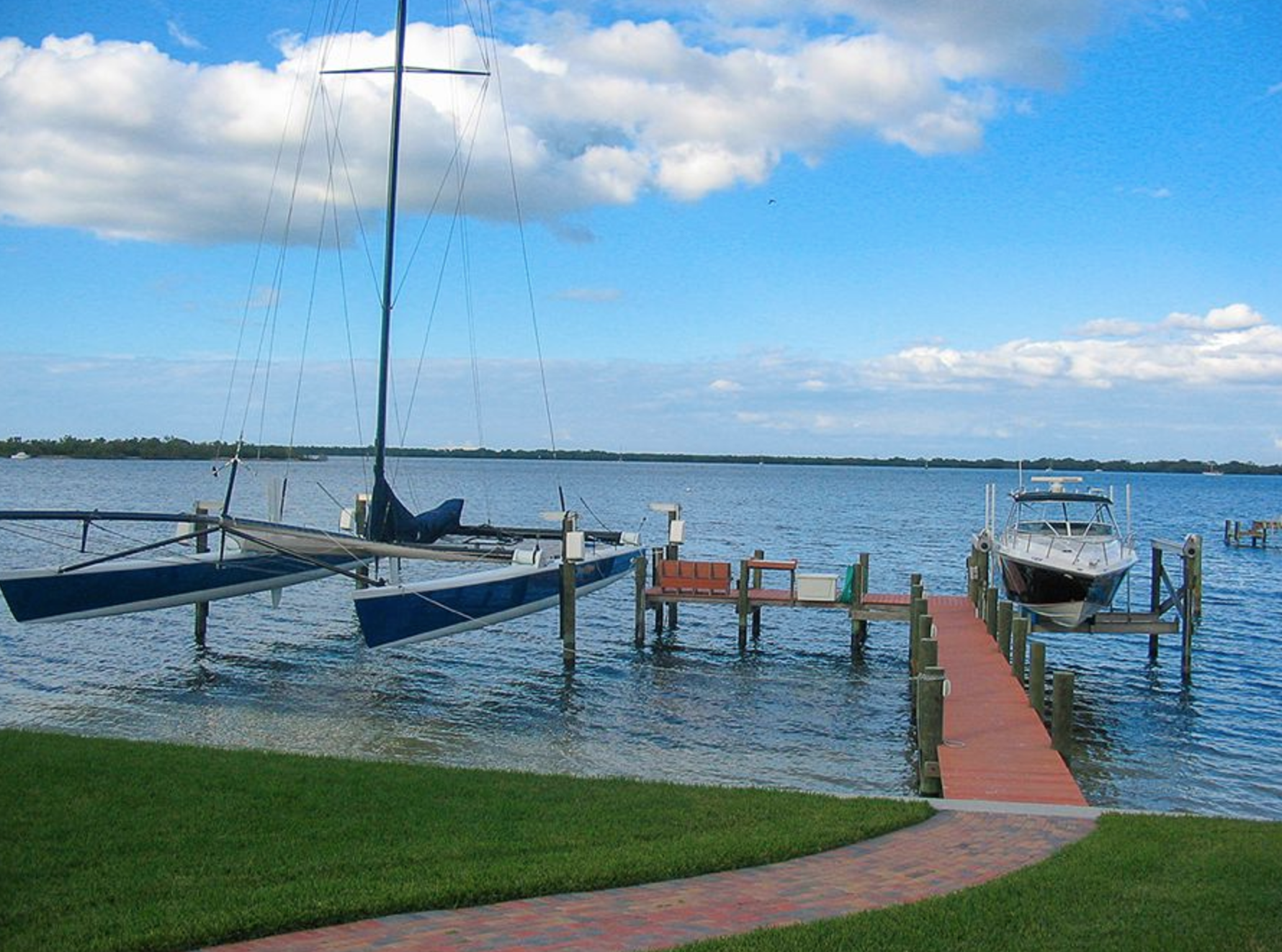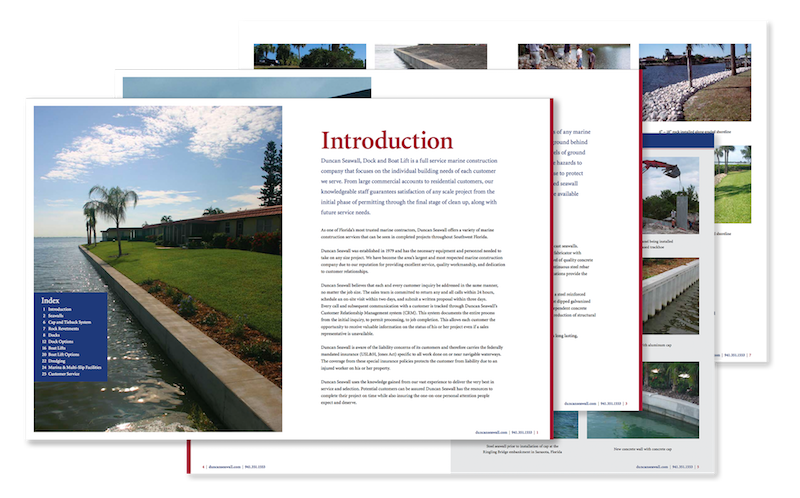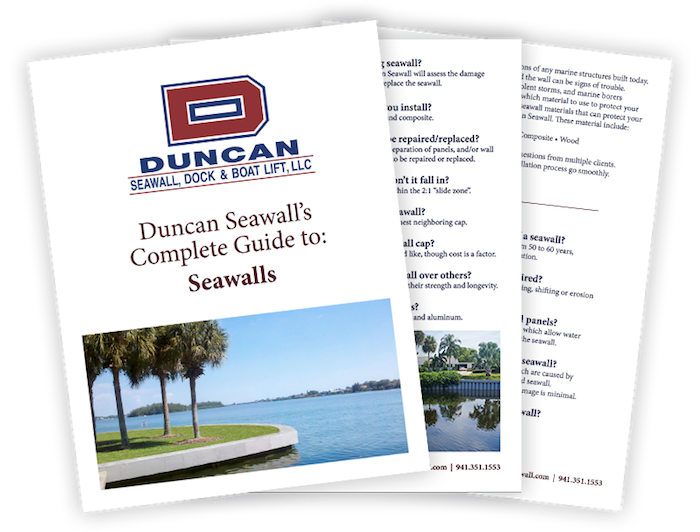Steel is a time-honored source material for heavy construction elements, which include seawalls. Steel offers a number of key advantages over other choices, as well as several intrinsic benefits with regards to the ultimate quality and longevity of a seawall.
Related Blog: 7 Benefits of Building a Vinyl Seawall
This article will discuss steel's advantages over three other common materials, and then detail 7 key benefits of building a steel seawall.
Steel's Advantages Over Wood, Concrete, and Composite Seawalls
While wood is a cost-effective solution upfront, seawalls composed of wood are susceptible to damage from marine life, and are also subject to rotting and splitting over time. This means that even though a person who builds a wooden seawall may initially save some money, in the end, these savings will likely be offset by early repair and replacement costs.
Concrete seawalls are very strong. However, they can also be quite expensive. In addition, concrete will begin to crack and split over time, and water that seeps into a concrete seawall's pores can cause the inner steel rebar to slowly corrode. Finally, the heavy-duty equipment required to install/maintain concrete seawalls may not be suitable for certain waterfront properties.
Seawalls made out of a composite material are generally cost-effective, and offer quick installation. However, composite seawalls are significantly weaker than their concrete or steel counterparts, and are also more susceptible to corrosion and damage from the elements.
The Benefits of Building a Steel Seawall
7 key advantages that steel offers in seawall construction are:
1. Resistance to Erosion
Unlike stone and certain types of concrete, steel is highly resistant to erosion - an important quality to have in a seawall!
2. Resilience to Invasive Marine Life
Mollusks, crustaceans, and other marine creatures that can bore into a variety of substances are potential hazards to seawalls made out of wood and other materials. However, steel construction protects a seawall from such invasive marine animals, thus eliminating an important long-term issue that many seawall owners and inspectors regularly face.
3. Resistance to UV Rays
Over time, ultraviolet light can gradually cause a material to deteriorate, even to the point of structural unsoundness. Fortunately, many types of steel are naturally resistant to UV radiation. Moreover, if a seawall owner wants to add an extra layer of protection against UV rays, then a UV-resistant coating can easily be applied to a steel surface.
4. Strength
Steel is one of the strongest construction materials available on the market today. Steel's strength plays a crucial role in seawall functionality, as the wall must bear the churning, crushing force of the waves and the tides on a daily basis.
5. Low Maintenance Needs
Steel's strength, resistance to erosion, and resilience against the natural elements all combine to make it one of the most "low-maintenance" materials for seawall construction.
6. Drivability
Wood, concrete, and other common source materials for seawalls are not suitable for every type of soil. On the other hand, steel is a highly drivable material, which makes it a good match for almost any soil composition.
7. Longevity
In contrast to less resilient, less durable materials, steel offers one of the highest thresholds of longevity for seawall builders. When properly installed, and periodically inspected, steel seawalls frequently last at least 25 years, if not much longer.
Steel seawalls may be a little bit more expensive to install than their wood, composite, or even concrete counterparts. However, their durability, strength, resilience, and low-maintenance functionality will more than make up for any initial costs that may be incurred. A steel seawall is an excellent choice when exposed wall height is a major consideration, and can keep waterfront properties secure for several decades.



